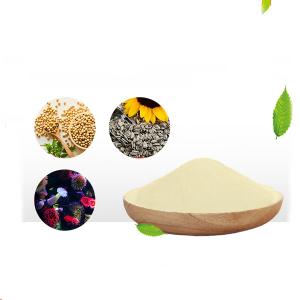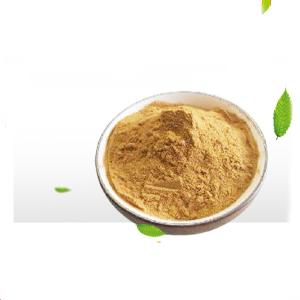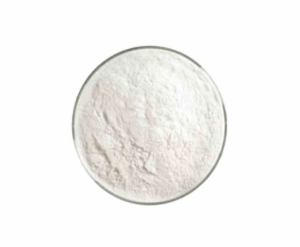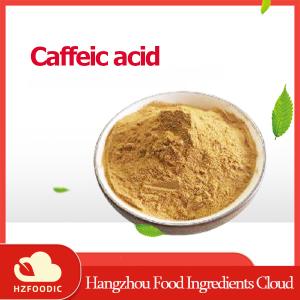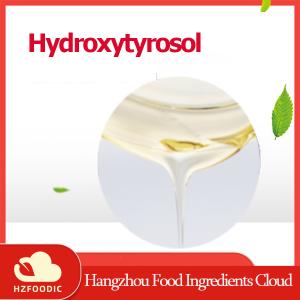Product Categories
--No product--
Hot products
News
The Impact of Phospholipids on Liver Function
Time:2024-08-02
The liver, often termed the body's metabolic powerhouse, plays a pivotal role in numerous physiological processes including detoxification, protein synthesis, and regulation of blood glucose levels. Its health and functionality are essential for overall well-being. Given its central role, the liver is vulnerable to various pathological conditions such as fatty liver disease, hepatitis, and cirrhosis. Recent research has highlighted the potential role of phospholipids in supporting liver function and health. This article explores the impact of phospholipids on liver function, examining their mechanisms of action, relevant research findings, and potential therapeutic applications.
Understanding Phospholipids
Phospholipids are a diverse group of lipids featuring a glycerol backbone, two fatty acid chains, and a phosphate group. They are fundamental components of cell membranes, contributing to membrane structure and function. Key types of phospholipids include:
Phosphatidylcholine (PC): The most abundant phospholipid in cell membranes and a critical component of lecithin. PC is involved in membrane integrity and lipid transport.
Phosphatidylethanolamine (PE): Found in various cellular membranes, PE supports membrane fusion and fluidity.
Phosphatidylserine (PS): Plays a role in cell signaling and membrane fluidity.
Sphingomyelin: Present in cell membranes and myelin sheaths, it is involved in signaling and membrane stability.
Mechanisms of Action
Phospholipids exert several effects on liver function through various mechanisms:
Cell Membrane Integrity and Fluidity
Membrane Structure: Phospholipids are essential for maintaining the structural integrity of liver cell membranes (hepatocytes). They contribute to the formation of lipid bilayers, which are crucial for cellular functions including nutrient transport and waste removal.
Membrane Fluidity: The fluidity of cell membranes, which is influenced by phospholipid composition, affects hepatocyte function. Alterations in membrane fluidity can impact liver cell metabolism, signaling pathways, and overall liver health.
Lipid Metabolism
Fatty Acid Transport: Phosphatidylcholine, a major component of lipoproteins, plays a role in the transport and metabolism of fatty acids and cholesterol. This function is crucial for the prevention of fatty liver disease, a condition characterized by excessive fat accumulation in liver cells.
Cholesterol Regulation: Phospholipids aid in the regulation of cholesterol levels by facilitating its transport and excretion. Imbalances in cholesterol metabolism can lead to liver diseases such as non-alcoholic fatty liver disease (NAFLD).
Anti-Inflammatory and Antioxidant Effects
Inflammatory Response: Phospholipids can influence inflammatory processes in the liver. Phosphatidylcholine, for instance, may modulate the production of pro-inflammatory cytokines and help reduce inflammation associated with liver diseases.
Oxidative Stress: Phospholipids contribute to the production of anti-inflammatory and antioxidant molecules, which help mitigate oxidative stress. Chronic oxidative stress is a key factor in liver damage and progression of liver diseases.
Bile Production and Secretion
Bile Formation: Phosphatidylcholine is a vital component of bile, which is produced by the liver and is essential for the digestion and absorption of dietary fats. Adequate phosphatidylcholine levels are necessary for optimal bile production and function.
Gallbladder Health: Proper phospholipid levels support gallbladder health and prevent the formation of gallstones, which can obstruct bile flow and impact liver function.
Research Findings
Recent research has provided insights into the role of phospholipids in liver health and disease:
Phosphatidylcholine (PC) and Liver Health
Fatty Liver Disease: Studies have shown that phosphatidylcholine supplementation can help reduce liver fat accumulation and improve liver function in individuals with NAFLD. Phosphatidylcholine appears to support liver function by enhancing lipid metabolism and reducing inflammation.
Hepatitis and Cirrhosis: Research suggests that phosphatidylcholine may have protective effects against liver inflammation and fibrosis. In chronic liver diseases like hepatitis and cirrhosis, phosphatidylcholine may help maintain liver cell membrane integrity and reduce damage.
Clinical Trials: Clinical trials have demonstrated that phosphatidylcholine supplementation can improve liver enzyme levels and overall liver health in patients with liver conditions. These trials highlight the potential therapeutic benefits of phosphatidylcholine in managing liver diseases.
Phosphatidylethanolamine (PE) and Hepatic Function
Endothelial Function: Phosphatidylethanolamine has been shown to support endothelial function and reduce hepatic inflammation. It may also play a role in preventing endothelial dysfunction, which is linked to various liver diseases.
Fatty Acid Metabolism: Research indicates that phosphatidylethanolamine influences fatty acid metabolism and lipid transport in the liver. Proper levels of PE are associated with improved lipid profiles and reduced risk of fatty liver disease.
Phosphatidylserine (PS) and Liver Health
Oxidative Stress: Phosphatidylserine has been found to have antioxidant properties, which may help reduce oxidative stress in the liver. This effect is beneficial for preventing liver damage and supporting overall liver health.
Cellular Function: Phosphatidylserine supports cellular function and membrane stability, which is crucial for liver cell health and repair.
Sphingomyelin and Liver Disease
Lipid Metabolism: Sphingomyelin plays a role in lipid metabolism and cholesterol transport. Alterations in sphingomyelin levels have been linked to metabolic disorders and liver diseases. Research is ongoing to understand its role in liver health and disease.
Metabolic Syndrome: Some studies suggest that sphingomyelin levels may be associated with metabolic syndrome, a condition that increases the risk of liver disease. Understanding these connections could lead to new therapeutic approaches.
Dietary Sources of Phospholipids
Incorporating phospholipids into the diet can support liver health. Common dietary sources include:
Egg Yolks: Rich in phosphatidylcholine, egg yolks are a significant source of this important phospholipid.
Soybeans and Soy Products: Soy lecithin contains phosphatidylcholine and phosphatidylethanolamine, and is commonly used as a dietary supplement.
Meat and Fish: Animal tissues, particularly organ meats and fatty fish, provide phosphatidylcholine and other phospholipids.
Nuts and Seeds: Certain nuts and seeds contain phospholipids, including phosphatidylcholine and sphingomyelin.
Phospholipids as Therapeutic Agents
Phospholipids have potential therapeutic applications for liver health:
Supplementation: Phospholipid supplements, particularly those containing phosphatidylcholine, are being studied for their ability to support liver health and treat liver diseases. These supplements may help reduce liver fat, improve liver enzyme levels, and support overall liver function.
Functional Foods: Incorporating phospholipids into functional foods may offer additional benefits for liver health. Functional foods containing phosphatidylcholine or other phospholipids are being developed and tested for their potential therapeutic effects.
Lipid-Based Drug Delivery: Phospholipids are used in drug delivery systems to enhance the bioavailability and efficacy of liver-targeted therapies. Liposomal formulations, which incorporate phospholipids, can improve the delivery of drugs to liver tissues and enhance therapeutic outcomes.
Challenges and Considerations
While the potential benefits of phospholipids in liver health are promising, several challenges and considerations must be addressed:
Bioavailability and Absorption: The bioavailability and absorption of phospholipids can vary depending on their source and formulation. Ensuring effective delivery and utilization of phospholipids in therapeutic applications is crucial for achieving desired health outcomes.
Individual Variability: The effects of phospholipids on liver health may vary among individuals based on factors such as genetics, existing health conditions, and dietary habits. Personalized approaches to supplementation and dietary intake may be necessary to optimize benefits.
Regulatory and Safety Issues: As with any dietary supplement or therapeutic agent, regulatory and safety considerations must be addressed. Ensuring that phospholipid supplements and functional foods are safe and effective requires rigorous testing and adherence to regulatory standards.
Future Directions
Future research and advancements in the field of phospholipids and liver health may focus on:
Mechanistic Studies: Further research is needed to elucidate the specific mechanisms by which phospholipids influence liver function. Understanding these mechanisms can help guide the development of targeted interventions and therapies.
Long-Term Clinical Trials: Long-term clinical trials are essential for confirming the liver health benefits of phospholipid supplementation and dietary intake. These studies will provide valuable insights into the effectiveness and safety of phospholipids for liver health.
Integration with Lifestyle Interventions: Combining phospholipid interventions with other lifestyle modifications, such as diet and exercise, may offer a comprehensive approach to liver health. Research exploring the synergistic effects of these interventions will be valuable.
Conclusion
Phospholipids play a crucial role in maintaining liver function through their effects on cell membrane integrity, lipid metabolism, inflammation, and bile production. The potential benefits of phosphatidylcholine, phosphatidylethanolamine, phosphatidylserine, and sphingomyelin highlight the importance of these lipids in supporting liver health and preventing liver diseases.
While current research is promising, further studies are needed to fully understand the mechanisms by which phospholipids impact liver function and to confirm their effectiveness in clinical settings. Addressing challenges related to bioavailability, individual variability, and regulatory issues will be essential for optimizing the use of phospholipids in liver health.
Incorporating phospholipids into the diet and exploring their therapeutic potential may provide valuable tools for improving liver health and supporting overall well-being. As research continues to advance, phospholipids may become an important component of comprehensive strategies for managing and preventing liver diseases.
Understanding Phospholipids
Phospholipids are a diverse group of lipids featuring a glycerol backbone, two fatty acid chains, and a phosphate group. They are fundamental components of cell membranes, contributing to membrane structure and function. Key types of phospholipids include:
Phosphatidylcholine (PC): The most abundant phospholipid in cell membranes and a critical component of lecithin. PC is involved in membrane integrity and lipid transport.
Phosphatidylethanolamine (PE): Found in various cellular membranes, PE supports membrane fusion and fluidity.
Phosphatidylserine (PS): Plays a role in cell signaling and membrane fluidity.
Sphingomyelin: Present in cell membranes and myelin sheaths, it is involved in signaling and membrane stability.
Mechanisms of Action
Phospholipids exert several effects on liver function through various mechanisms:
Cell Membrane Integrity and Fluidity
Membrane Structure: Phospholipids are essential for maintaining the structural integrity of liver cell membranes (hepatocytes). They contribute to the formation of lipid bilayers, which are crucial for cellular functions including nutrient transport and waste removal.
Membrane Fluidity: The fluidity of cell membranes, which is influenced by phospholipid composition, affects hepatocyte function. Alterations in membrane fluidity can impact liver cell metabolism, signaling pathways, and overall liver health.
Lipid Metabolism
Fatty Acid Transport: Phosphatidylcholine, a major component of lipoproteins, plays a role in the transport and metabolism of fatty acids and cholesterol. This function is crucial for the prevention of fatty liver disease, a condition characterized by excessive fat accumulation in liver cells.
Cholesterol Regulation: Phospholipids aid in the regulation of cholesterol levels by facilitating its transport and excretion. Imbalances in cholesterol metabolism can lead to liver diseases such as non-alcoholic fatty liver disease (NAFLD).
Anti-Inflammatory and Antioxidant Effects
Inflammatory Response: Phospholipids can influence inflammatory processes in the liver. Phosphatidylcholine, for instance, may modulate the production of pro-inflammatory cytokines and help reduce inflammation associated with liver diseases.
Oxidative Stress: Phospholipids contribute to the production of anti-inflammatory and antioxidant molecules, which help mitigate oxidative stress. Chronic oxidative stress is a key factor in liver damage and progression of liver diseases.
Bile Production and Secretion
Bile Formation: Phosphatidylcholine is a vital component of bile, which is produced by the liver and is essential for the digestion and absorption of dietary fats. Adequate phosphatidylcholine levels are necessary for optimal bile production and function.
Gallbladder Health: Proper phospholipid levels support gallbladder health and prevent the formation of gallstones, which can obstruct bile flow and impact liver function.
Research Findings
Recent research has provided insights into the role of phospholipids in liver health and disease:
Phosphatidylcholine (PC) and Liver Health
Fatty Liver Disease: Studies have shown that phosphatidylcholine supplementation can help reduce liver fat accumulation and improve liver function in individuals with NAFLD. Phosphatidylcholine appears to support liver function by enhancing lipid metabolism and reducing inflammation.
Hepatitis and Cirrhosis: Research suggests that phosphatidylcholine may have protective effects against liver inflammation and fibrosis. In chronic liver diseases like hepatitis and cirrhosis, phosphatidylcholine may help maintain liver cell membrane integrity and reduce damage.
Clinical Trials: Clinical trials have demonstrated that phosphatidylcholine supplementation can improve liver enzyme levels and overall liver health in patients with liver conditions. These trials highlight the potential therapeutic benefits of phosphatidylcholine in managing liver diseases.
Phosphatidylethanolamine (PE) and Hepatic Function
Endothelial Function: Phosphatidylethanolamine has been shown to support endothelial function and reduce hepatic inflammation. It may also play a role in preventing endothelial dysfunction, which is linked to various liver diseases.
Fatty Acid Metabolism: Research indicates that phosphatidylethanolamine influences fatty acid metabolism and lipid transport in the liver. Proper levels of PE are associated with improved lipid profiles and reduced risk of fatty liver disease.
Phosphatidylserine (PS) and Liver Health
Oxidative Stress: Phosphatidylserine has been found to have antioxidant properties, which may help reduce oxidative stress in the liver. This effect is beneficial for preventing liver damage and supporting overall liver health.
Cellular Function: Phosphatidylserine supports cellular function and membrane stability, which is crucial for liver cell health and repair.
Sphingomyelin and Liver Disease
Lipid Metabolism: Sphingomyelin plays a role in lipid metabolism and cholesterol transport. Alterations in sphingomyelin levels have been linked to metabolic disorders and liver diseases. Research is ongoing to understand its role in liver health and disease.
Metabolic Syndrome: Some studies suggest that sphingomyelin levels may be associated with metabolic syndrome, a condition that increases the risk of liver disease. Understanding these connections could lead to new therapeutic approaches.
Dietary Sources of Phospholipids
Incorporating phospholipids into the diet can support liver health. Common dietary sources include:
Egg Yolks: Rich in phosphatidylcholine, egg yolks are a significant source of this important phospholipid.
Soybeans and Soy Products: Soy lecithin contains phosphatidylcholine and phosphatidylethanolamine, and is commonly used as a dietary supplement.
Meat and Fish: Animal tissues, particularly organ meats and fatty fish, provide phosphatidylcholine and other phospholipids.
Nuts and Seeds: Certain nuts and seeds contain phospholipids, including phosphatidylcholine and sphingomyelin.
Phospholipids as Therapeutic Agents
Phospholipids have potential therapeutic applications for liver health:
Supplementation: Phospholipid supplements, particularly those containing phosphatidylcholine, are being studied for their ability to support liver health and treat liver diseases. These supplements may help reduce liver fat, improve liver enzyme levels, and support overall liver function.
Functional Foods: Incorporating phospholipids into functional foods may offer additional benefits for liver health. Functional foods containing phosphatidylcholine or other phospholipids are being developed and tested for their potential therapeutic effects.
Lipid-Based Drug Delivery: Phospholipids are used in drug delivery systems to enhance the bioavailability and efficacy of liver-targeted therapies. Liposomal formulations, which incorporate phospholipids, can improve the delivery of drugs to liver tissues and enhance therapeutic outcomes.
Challenges and Considerations
While the potential benefits of phospholipids in liver health are promising, several challenges and considerations must be addressed:
Bioavailability and Absorption: The bioavailability and absorption of phospholipids can vary depending on their source and formulation. Ensuring effective delivery and utilization of phospholipids in therapeutic applications is crucial for achieving desired health outcomes.
Individual Variability: The effects of phospholipids on liver health may vary among individuals based on factors such as genetics, existing health conditions, and dietary habits. Personalized approaches to supplementation and dietary intake may be necessary to optimize benefits.
Regulatory and Safety Issues: As with any dietary supplement or therapeutic agent, regulatory and safety considerations must be addressed. Ensuring that phospholipid supplements and functional foods are safe and effective requires rigorous testing and adherence to regulatory standards.
Future Directions
Future research and advancements in the field of phospholipids and liver health may focus on:
Mechanistic Studies: Further research is needed to elucidate the specific mechanisms by which phospholipids influence liver function. Understanding these mechanisms can help guide the development of targeted interventions and therapies.
Long-Term Clinical Trials: Long-term clinical trials are essential for confirming the liver health benefits of phospholipid supplementation and dietary intake. These studies will provide valuable insights into the effectiveness and safety of phospholipids for liver health.
Integration with Lifestyle Interventions: Combining phospholipid interventions with other lifestyle modifications, such as diet and exercise, may offer a comprehensive approach to liver health. Research exploring the synergistic effects of these interventions will be valuable.
Conclusion
Phospholipids play a crucial role in maintaining liver function through their effects on cell membrane integrity, lipid metabolism, inflammation, and bile production. The potential benefits of phosphatidylcholine, phosphatidylethanolamine, phosphatidylserine, and sphingomyelin highlight the importance of these lipids in supporting liver health and preventing liver diseases.
While current research is promising, further studies are needed to fully understand the mechanisms by which phospholipids impact liver function and to confirm their effectiveness in clinical settings. Addressing challenges related to bioavailability, individual variability, and regulatory issues will be essential for optimizing the use of phospholipids in liver health.
Incorporating phospholipids into the diet and exploring their therapeutic potential may provide valuable tools for improving liver health and supporting overall well-being. As research continues to advance, phospholipids may become an important component of comprehensive strategies for managing and preventing liver diseases.


 CN
CN

